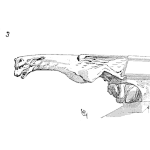
Ran across this question the other day from someone just starting in the role of reliability engineer. I wasn’t smart enough to ask this question when I started in the field, yet looking back I’m sure to have found the list of what one should learn and apply daunting.
You should learn how electronics fail. And this may involve:
- design errors in specific component technologies.
- assembly errors in specific component processes.
- material and process variability.
- environmental stress conditions.
- use stress conditions.
- software interactions with hardware.
- and, the same range of topic at the subsystem and system level, too.
Of course, this same line of reasoning applies to any type of product with or without electronics.
Other elements you should learn to be effective as a reliability engineer include:
- basic engineering skills in electronic, electrical, mechanical, software, and system engineering.
- people skills such as listening, presenting, writing, influencing.
- design for reliability practices.
- statistical tools for modeling and analyzing data.
- science skills for modeling and analyzing material and system behaviors.
- failure analysis skills to under and understand root causes of failures.
- business skills so you can connect the value of reliability work to what is important to the business and key decision makers.
- customer awareness skills to understand what customers want and how to translate that to engineering terms your team can act on.
- and, finally how to learn well – as you will never stop learning as a reliability engineer.
That is a lot to learn. Start with the tasks and problems in front of you now and grow from there. Always look for tasks and projects that will force you to learn. Also look for ways to learn to enhance your ability to recognize opportunities and to be more effective is what you do.
Finally, have fun. Keep in mind that when a failure occurs you and your team have the chance to learn something that will lead to a more reliable product. When you make a mistake (your learning fails you…so to speak) you also can and should learn from that.
Leave a Reply